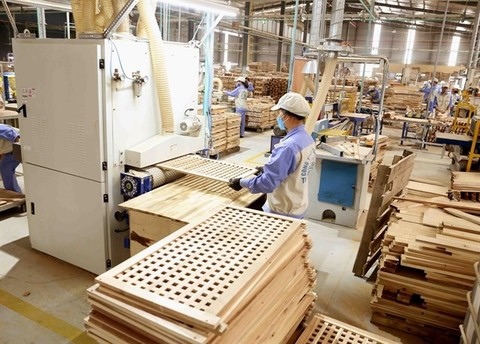Our Terms & Conditions | Our Privacy Policy
Businesses need to strengthen capacity for responding to trade defence lawsuits
Businesses need to strengthen capacity for responding to trade defence lawsuits
Increasing trade defence lawsuits for Vietnamese exports are forcing companies to increase their capacity to respond to these cases.
|
A steel production line for export. From 2004 to July 2024, Việt Nam’s steel product exports have faced 75 trade defence lawsuits, including 43 anti-dumping cases. VNA/VNS Photo
|
They are being advised to not just closely monitor lawsuits, but they should also coordinate with relevant management agencies, effectively use early warning tools and have a strategy for more proactively responding to issues.
According to the Ministry of Industry and Trade (MoIT) it is necessary to continue to promote early warnings on trade remedy for Vietnamese export goods and to also maintain support for those responding to trade defence lawsuits abroad.
Experts say increasing the capacity to respond to trade defence measures is extremely important for Vietnamese manufacturing and exporting enterprises to proactively and promptly respond to the suits to protect exports from Việt Nam.
“During trade defence lawsuits in foreign countries, domestic enterprises still had limitations in coordinating and sharing information with competent authorities at home and abroad,” said Associate Professor, Dr Nguyễn Ngọc Hà, director of the Institute for Innovation Research at Foreign Trade University.

WOOD WORK: Production of wooden furniture for export at WOODSLAND Tuyên Quang JSC. Wooden products are one of Việt Nam’s export goods facing trade remedies abroad. VNA/VNS Photo
|
In addition, awareness and resources of the enterprises regarding trade defence lawsuits were still limited, leading to the enterprises not always complying with the deadlines set by foreign investigating agencies, Hà said.
Other difficulties were weak coordination mechanisms and lack of financial mechanisms for handling the trade remedy investigation cases.
Hà recommended that the State improve coordination and build a financial mechanism to support companies in handling those cases. The State should also enhance information and early warnings to respond to the trend of increasing trade remedy investigation.
Furthermore, it was necessary to build a database to facilitate businesses in seeking information about the measures and the countries that apply them to Vietnamese exports.
According to the Trade Remedies Authority’s survey in 2023, 36 per cent of businesses who responded said they had only briefly researched any trade remedies, while only 17 per cent did thorough research. About 36 per cent of the businesses heard about the trade remedies, and 11 per cent of enterprises hardly knew anything about these lawsuits.
Therefore, it is important that businesses should proactively learn and raise their awareness about trade defence measures. In addition, companies should strengthen coordination with State management agencies to work on how to respond.
The US Department of Commerce (DoC) has received a request for an anti-dumping and countervailing duty investigation on corrosion-resistant (CORE) steel products. Việt Nam is one of ten countries exporting the investigated products, according to the Trade Remedies Authority under MoIT.

FISH FARM: Harvesting fish for Sao Mai Group to process for export. Vietnamese tra fish fillet has been imposed with an anti-dumping tariff in the US. VNA/VNS Photo Vũ Sinh
|
According to the US International Trade Commission (ITC), in 2023, Việt Nam exported US$242 million worth of the investigated steel products to the US, accounting for about seven per cent of the total CORE steel exports in this market.
In August 2024, India’s Directorate General of Trade Remedies (DGTR) initiated an anti-dumping investigation on hot-rolled steel coil originating from or exported from Việt Nam.
“From 2004 to July 2024, Việt Nam’s steel product exports faced 75 trade defence lawsuits, including 43 anti-dumping lawsuits”, said Đinh Quốc Thái, general secretary of the Việt Nam Steel Association.
“The domestic steel industry is always proactive in collecting information and actively cooperating with the foreign investigation agencies,” Thái said.
Meanwhile, the enterprises had established their own value chains to expand export market.
Besides equipping themselves with knowledge about trade remedies, the steel enterprises need to control exported products, especially imported raw materials, according to Thái.
As of September 2024, Việt Nam has faced over 250 trade remedy investigations from 24 markets for a variety of Vietnamese export products. Of which, anti-dumping investigations are at the top.
Particularly in the Asian, African and Oceanian markets, to protect their domestic production, these countries regularly investigate and apply trade remedy measures on Vietnamese exports.
MoIT said the number of trade remedy cases from Asian, African and Oceanian markets was 136 out of a total of 253 cases against Vietnamese export goods. The investigated products included building materials, wood products, chemicals and agriculture, forestry and fishery products.
Bizhub
Images are for reference only.Images and contents gathered automatic from google or 3rd party sources.All rights on the images and contents are with their legal original owners.


Comments are closed.